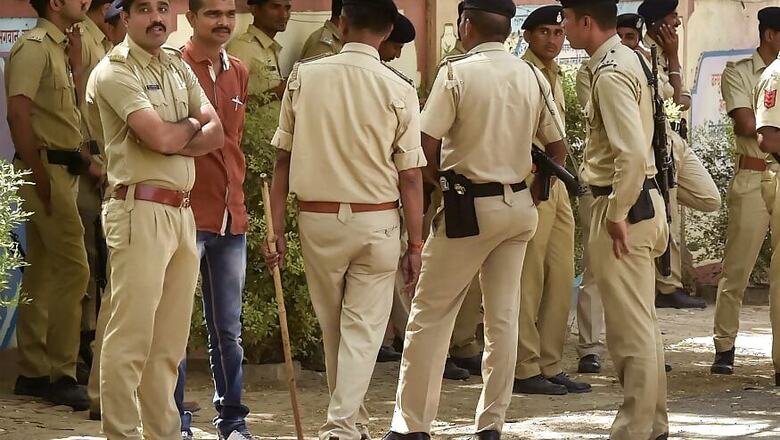
views
“I’m a lawyer, so they could not get their way with me. But what about a normal person, who gets beaten up for free?” asks Deepak Bundele, a resident of Betul, Madhya Pradesh, who says he is currently in a fight against an “entire system”.
Suffering from diabetes and hypertension, Bundele decided to go to his local hospital on March 23, and get himself checked to refill his stock of medicines; the situation due to Covid-19 had begun to worsen across the nation at the time. But in the midst of his journey, he says he was stopped by police personnel at Laali Chowk. “They wanted me to turn back, but I refused, after which I had an argument with them in which one of them slapped me,” he recalls.
Adamant to complete his essential task, Bundele says that he then vehemently reminded the police of their constitutional limits. “That angered them, and they beat me black and blue."
Fast-forward to May 17. Police officials arrive at Bundele’s home to record his statement about what had happened on March 23. In the conversation that took place, Bundele says he was repeatedly asked to take his complaint back.
The reason? According to a police official, BS Patel, Bundele had not deserved the beating. He was instead reportedly mistaken for a Muslim because of the long beard he sported, Patel says in a purported audio recording of the conversation. "What bothered me is that they were completely unashamed and nonchalant about the admission," Bundele says.
Now, Bundele has approached the Madhya Pradesh High Court in a bid to get a state-level Police Complaints Authority set up, and get an FIR registered against the brutality he said he was subjected to. Three months after the incident, however, MP police has also registered a case against him, filed by sub-inspector Mohit Kumar Dubey at the Betul Kotwali police station. Dubey alleges that Bundele was asked to wear a mask and turn back home, only to have him "manhandle and abuse police officials" on March 23. Despite this, the lawyer says he is continuing his "good fight".
Coupled with other recent incidents of purported excessive use of force by police—such as the deaths of Jayaraj and Bennix after being allegedly tortured in Tamil Nadu police custody, or a Dalit farmer allegedly being beaten up by MP police— a wider conversation has begun in the country around police reforms and accountability. This, even as the United States continues to grapple with its own movement against police brutality and racism after the death of George Floyd.
Combating Bias
According to a 2019 report — Status of Policing in India, carried out by Common Cause and CSDS— the treatment of minorities inside and outside the police force is fraught with issues. "Less than half of the police personnel feel that SCs and STs within the police are given completely equal treatment when compared to other caste groups."
The report also outlines how 14% personnel feel that Muslims are "very much" naturally prone to committing crimes, while 36 per cent feel that Muslims are "somewhat" naturally prone to committing crimes. One in five personnel also feel that the complaints under the Scheduled Caste/ Scheduled Tribe (Prevention of Atrocities) Act are "very much false and motivated", and that upper caste personnel are more likely to be of this opinion, it states.
Devyani Srivastava, a senior programme officer in the police reforms programme of the Commonwealth Human Rights Initiative, says that during her work in Madhya Pradesh's 'Ajak Thanas' — special police stations meant to address grievances of SC/ST people — a deep-rooted prejudice could be witnessed at work.
"We were looking at other functioning aspects of the thanas so we don't have conclusive research on the particular issue, but from what we found, it could be seen that the majority of views of thana officials were discriminatory and dismissive of caste atrocities," she says, adding that this is so despite it being 30 years since the SC/ST Act came into force.
She adds, however, that at the leadership level, there was effort to address the problem. "The term anti-bias training is normally used for gender-sensitisation programmes, and for minorities, such training is centered around the SC/ST Atrocities Act, its provisions and implementation," Srivastava says.
At a two-day training in Bhopal, she saw novel methods being employed to increase awareness among personnel. A documentary on caste discrimination was shown and lecturers came to shed light on the issue. However, there was still resistance to bringing in Dalit activist voices. "I thought this was very interesting because it has been 25 years of the unit (Ajak Thanas) functioning, and you still have resistance to a Dalit activist speaking? That is the state of affairs. So I think institutionalising bias training is going to be a long road ahead. For now, even the Atrocities Act training is not extensive in every state," she says.
An Overburdened Force, Police Rights & Political Pressure
When asked about the issue of police brutality, Vikram Singh, an educationist and former IPS officer who served as DGP in Uttar Pradesh Police, talks about a "deeper malice in terms of the training of police personnel" which he believes is the cause behind what is currently happening.
"With 18 plus hours of work, any person could become a demon," he says, adding that in such a scenario, the six months to 1 year of induction training goes to the “background” and you see a personnel behaving the way he is now. According to him, while sensitisation training is provided to police personnel it cannot make a difference until the person is working normal, humane hours.
"He works for 18 hours a day without rest, he’s under stress, is not able to go back home, he has no stress buster. These things are the ground realities," Singh says.
A 2017 report by the Parliamentary Research Services points out that state police forces had 24% (about 5.5 lakh) vacancies in January 2016. Thus, even though the sanctioned police strength was 181 police per lakh persons in 2016, the real strength was just 137. The United Nations recommends a standard of 222 police per lakh persons.
The report states that 86% of the state police is composed of the constabulary force. They are usually promoted just once during their service and usually retire as head constables, further weakening their incentive to perform.
The 2019 Common Cause report states that police personnel work for 14 hours a day on an average, with about 80 per cent of them working for more than 8 hours a day. "Nearly one in two personnel work overtime regularly, while eight out of ten personnel do not get paid for overtime work."
It also talks about how nearly three out of five respondents from the families of personnel are dissatisfied with the government-provided housing quarters and that one out of two personnel do not get any weekly off days. Thirty-seven per cent personnel are willing to give up their jobs for another profession, if the perks and salaries remain the same, the report points out.
Singh says that after recruitment, a police personnel is supposed to be trained for about 11 to 12 months. However, according to him, the entirety of the training is not often completed, as the personnel is placed on duty beforehand. They are also supposed to receive training for 1 month each year. The former IPS officer says even that mostly remains on paper.
"Because of poor manpower, 30% vacancies, that training of one month a year is only on paper and does not happen in classrooms where it is so essential. Real-life examples, simulated examples, problem-solving, exposure to the latest amendments of the National Human Rights Commission, and various commissions, also the Supreme Court, is a part of that training," he says.
Talking about police brutality, he believes that "third degree" happens because of the "demands on police and corruption". Calling for an increase in the budget for scientific aid to investigation, he says that a professional investigator never even needs to “touch the accused” and can successfully solve the crime through forensic science, ballistics, lie-detection, among other special techniques.
Anuja Trehan Kapur, a renowned criminal psychologist and victimologist, who has been hired as an Honorary Special Police Officer in Delhi Police, also echoes this perspective. Kapur wishes that more robust practical training of special scientific methods is given to constables and other personnel.
"I am an HSPO, but how many times have I been called? I have been given a designation, but in reality am I working for you? Don’t you think that these people (constables) too need education? Or is physical training the only aspect? Mental training is also important," she says.
She points out that many people join the force with notions of serving the nation; making the ultimate sacrifice. But most, she says, join after witnessing the fear that the police hold over the public since childhood. "One person gets inducted, and the entire village feels powerful."
Therein comes the inherent hierarchical bullying in the system which breaks their spirit, she says. Coupled with the political influence over the job, bad working hours and personal history and challenges, the actions of police personnel become dependent on a myriad of issues, she says.
According to her, no reforms can take place unless there is political will to carry them out. "Unless a policeman does not salute a politician, how can there be reforms?" she says, adding that the minute the police is reformed, the common man would not need to stand above or below the politicians.
"Is the victim of police, a victim of police or the politician, then tell me? Are their rights not human rights?" Kapur asks.
To insulate the police at all levels from political pressure, is a job easier said than done, according to Singh. Like Kapur, he also feels that there is extreme political reluctance to introduce police reforms.
“It is conducive and convenient for the corrupt and the inefficient to quote favours and dance to the tune of political masters. And who suffers? It is the people and the upright police officers who want to perform only by the rule book and by the constitution of India,” he says.
According to him, for every illegal act that a politician wants to carry out, there are many police personnel lined up who are more than eager to curry favours with him. “So this is a vicious circle and it needs to be broken; and broken how? By introducing professionalism and police reforms,” he says.
Singh outlines solutions: "Fill up the 30 per cent vacancies, give a two-shift system. Give them the weekly offs, even if there is acute shortage of employees, give them the compulsory Sunday or a Saturday." He adds that some states had already started giving police personnel mandatory offs "because that is a biological and mental necessity".
He feels the police should be an instrument of intellectual pursuit rather than just brawn. "It has to be more of brains, more of EQ (emotional quotient), more of SQ (social quotient) than just robust IQ and brawn," he says.
Police Complaints Authority & Accountability
Post-independent India was governed by the archaic and colonial Police Act of 1861. The Act was legislated by the British after the 1857 Mutiny, also known as the 'First War of Independence'. A Commonwealth Human Rights Initiative (CHRI) report states how the purpose of such an act at the time, was to crush dissent and any movement for self-government.
However, even after over 70 years of Independence, a few states continue to be governed by the 1861 Act, while some others function on legislation that closely resemble it. Even as previous government reports of police reforms continued to gather dust, in 1996, two former DGPs filed a PIL with the Supreme Court, stating various instances of abuse by police's power and the political influence over their duties.
In the judgement of the case, Prakash Singh vs Union of India, the apex court in 2006 issued binding directives to states and the central government to initiate and implement police reforms. Among the seven directives, one also mandated the setting up of a 'Police Complaints Authority (PCA)' — a body meant to register and carry out inquiries on complaints against incidents of police excesses, brutality and negligence. A month after the judgement, the Model Police Bill (meant to serve as a legislative framework for police reforms) was also produced by a government committee headed by eminent jurist Soli Sorabjee. In the 2006 judgement, the apex court had also referred to the Draft Model Police Bill, advising state governments to frame new Police Acts based on it.
However, according to the CHRI, which monitors the functioning and progress of PCAs in many states, they either remain just on paper or the court directive is ignored. "At any given time, there are about 8-10 functioning PCAs in the country," says Srivastava.
Taking the example of MP, she says the state is one of the worst in terms of implementation of the SC directives (of 2006), being one of the few which still function on the 1861 Police Act.
"About 18 states have brought in either new police Acts or legislative amendments to their old Acts to incorporate the directives in a sense. That’s a comment about the commitment to actually transform policing in the state," she says.
Srivastava outlines that while Madhya Pradesh has district PCAs, they have not been set up as per the court's directives. Essentially meant to be external bodies, and despite adequate guidance on how these bodies can be set up, MP actually has elected the sub-inspector, collector and minister-in charge of the district (she is unclear as to who serves this role) as members of the body, Srivastava says. "This is completely in violation of the objective and spirit of the directive," she adds.
Moving onto the debate of whether a PCA can actually make an on-ground difference, Srivastava is of the opinion that it all boils down to how the body has been designed, whether there are actually independent members in it, and if the person appointed to be in charge has a particular orientation or is proactive. To explain, she gives Kerala's example; having had 3 to 4 tenures of the body, she says the PCAs functioned according to the nature of the person heading it (whether they are proactive or afraid to "ruffle feathers").
She says that while a debate about the benefits of the PCA are ongoing, a pool of people do feel respite at having an external body to approach for reporting such incidents. Meanwhile, the topic of accountability of police should be brought up more frequently, even in police training sessions, Srivastava adds.
The ecosystem of healthy policing is punishment-oriented, Singh says, adding that prompt punishment is more important than rewards for training and morale of the police force.
The former IPS officer says that he and others are now gearing up to approach the Supreme Court with a writ petition on police reforms. "A clean and efficient police force is our birthright. It is mandated by law and the choice of whether or not to implement reforms does not lie with politicians," he says.










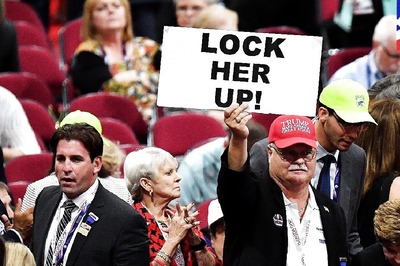


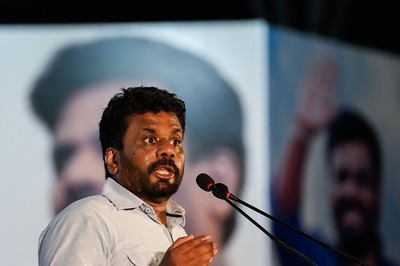
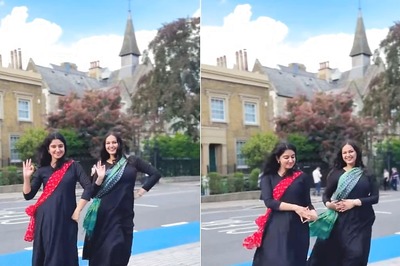
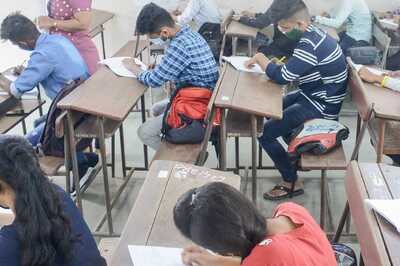
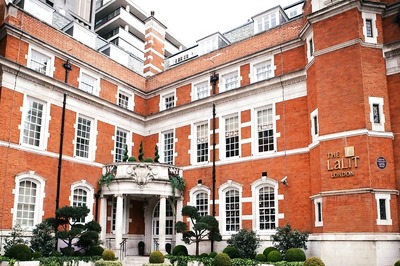

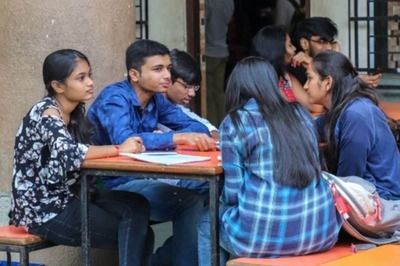
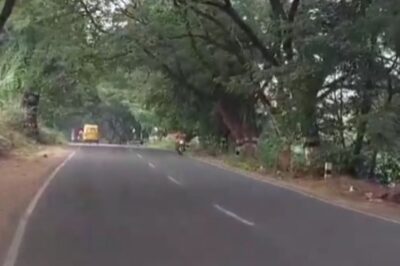
Comments
0 comment